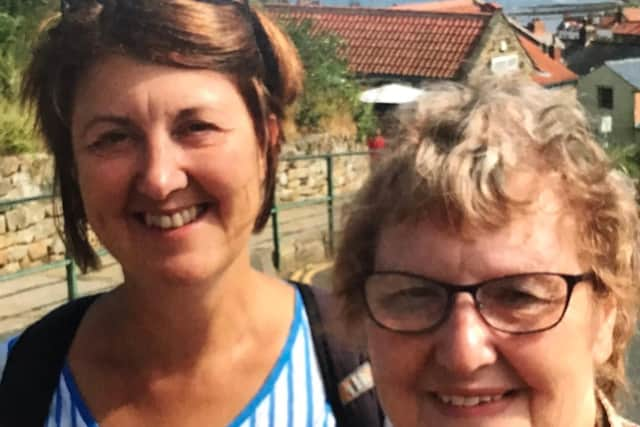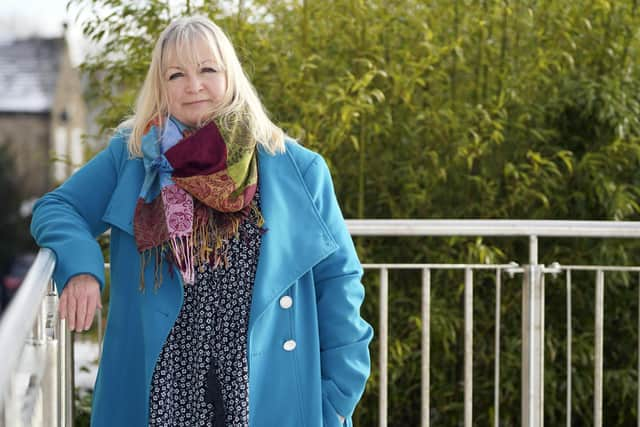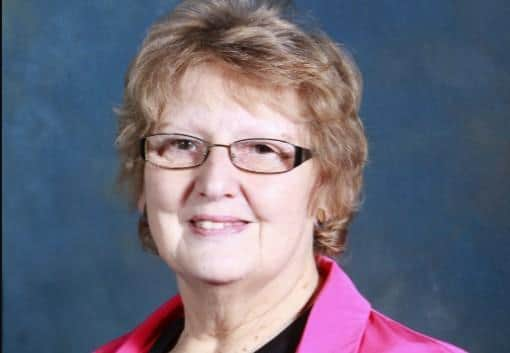How the pandemic in Sheffield has taken away our chance to grieve for loved ones
and live on Freeview channel 276
All families who have suffered a bereavement, not just those affected by Covid, are struggling during the pandemic.
There are no funerals and wakes, swelled with mourners to remember the dead and support the living. Restrictions on numbers mean there’s no room for friends, neighbours and work colleagues to be part of the final goodbye.
Advertisement
Hide AdAdvertisement
Hide AdAshes remain uncollected, gravestones and memorial plots have been paused. There’s no toasts to absent friends over dinner or even comforting hugs and hand holding.


Families consoled themselves with plans for a memorial but – one year on since the pandemic hit Sheffield – any mass gathering still feels a very long time away.
A Labour councillor, Pat was due to stand down from her Manor Castle ward and enjoy retirement after 33 years of public service.
She was known throughout Sheffield and much loved and respected but her husband Don, brother Tony, children Joanna, Neil and Jamie and grandchildren weren’t able to hold a funeral for the many people she knew or commemorate the fantastic work she had done for the city.


Advertisement
Hide AdAdvertisement
Hide AdJoanna now wonders if they will ever be able to hold a memorial.
She said: “The local Labour Party wants to do a little tree planting but it’s not going to be on the year anniversary so then it feels weird, at what point do you mark it?”
“I’ve only seen family a handful of times, sat in the garden last summer, but I haven’t seen the people who would want to remember my mum, we just haven’t seen them to chat to.
“We don’t have a headstone for my mum yet and I don’t even know if we will be able to do anything when it arrives.”


Advertisement
Hide AdAdvertisement
Hide AdJoanna has found support through a Facebook group for people who have lost relatives to Covid.
She added: “It’s a good thing to dip into it now and then. A lot of new people have joined the group with more recent deaths and then there’s everyone else’s grief and that continual theme about how people just haven’t been able to grieve.
“If you think about all the people who have died, not just those from Covid, and all the people connected to them, you’re talking millions who have not had a normal grieving process. This is pretty phenomenal.”
Covid has clouded the grieving process for her and lockdowns mean the wound isn’t healing.
Advertisement
Hide AdAdvertisement
Hide Ad“For people with memories of the trauma Covid caused, the death rate is a daily reminder. Sometimes I go a weekend without putting the news but it’s hard to just block it all out completely,” said Joanna.
“The anger is swelling but I haven’t lost anybody significant before so I don’t know how this compares to a normal grief process and whether I should still feel completely consumed by it all this time later.
“There’s the constant reminders, not being able to get together with people, the anger about the Government’s handling of it, hearing what other people are going through. All those factors layered on top make it really complicated and I don’t know how to feel.”
Viv Huckerby is bereavement service coordinator at St Luke’s Hospice and says the grief process has become more complex for everyone.
Advertisement
Hide AdAdvertisement
Hide Ad“Throughout the pandemic, people have lost loved ones through illness or sudden and traumatic death and they can feel their losses are not validated in the same way as Covid deaths are in the headlines,” she said.
“However they are affected by all the same difficulties – we call this disenfranchised grief where their grief and loss is not recognised in the same way.
“The second lockdown has felt noticeably worse. Because of winter and dark nights, people couldn’t go out as much and it feels more isolating with a real intensity to it.
“The dual process model of grief describes how we oscillate between loss and restoration and attend to everyday life but because we can’t go anywhere it’s very hard to get that respite from your grief, particularly for people who have lost their life partners. The lack of contact has added to the problem.”
She is concerned about the long term impacts of lockdown.
Advertisement
Hide AdAdvertisement
Hide AdShe added: “The rituals of being with someone in their final moments, of gathering friends and family at a funeral, are very important and help us start to process and adapt to the grief and loss. Not having those rituals will cause long term issues.
“I think a lot of memorials won’t happen because the moment has gone. It’s going to be very difficult as we don’t know how long this is going to last. We need to hold on to some hope so it may be doing something on the anniversary of the person’s birthday.”
She can offer some advice for those grieving. “If people offer help and you feel able to, accept it. Seek support if you need it. It’s okay to have respite if you can get it but it’s difficult to find any respite at the moment. Self care is important.
“Some days just to get up and get dressed is enough. Take the pressure off and take each day as it comes. There will be a point where a day will be better.
Advertisement
Hide AdAdvertisement
Hide Ad“We need to process our grief and retell the story and sometimes explain to people how we feel. It’s very individual but there are shared experiences and it’s the loss of human contact that we are all feeling.”
In these confusing and worrying times, local journalism is more vital than ever. Thanks to everyone who helps us ask the questions that matter by taking out a digital subscription or buying a paper. We stand together. Nancy Fielder, editor.